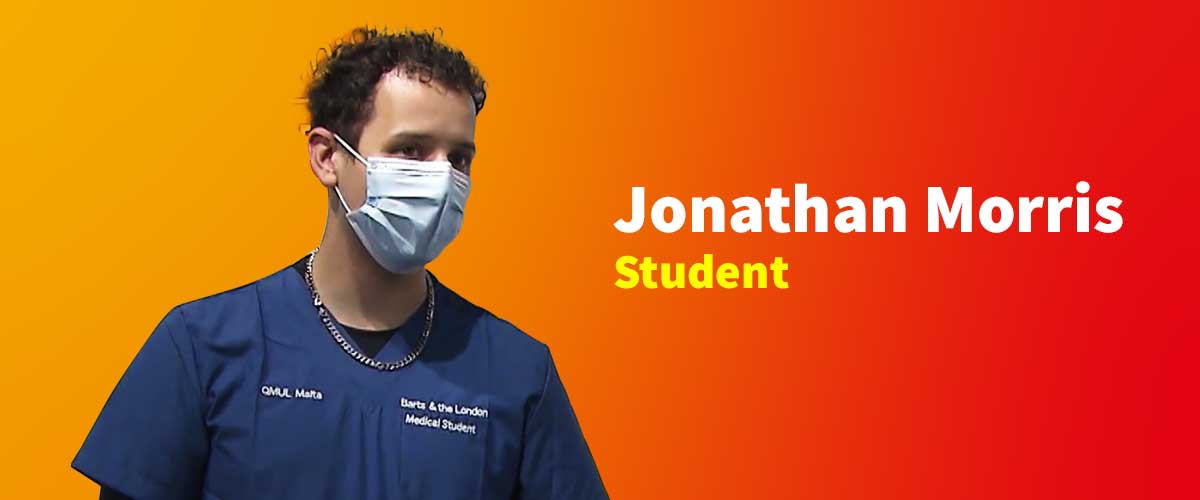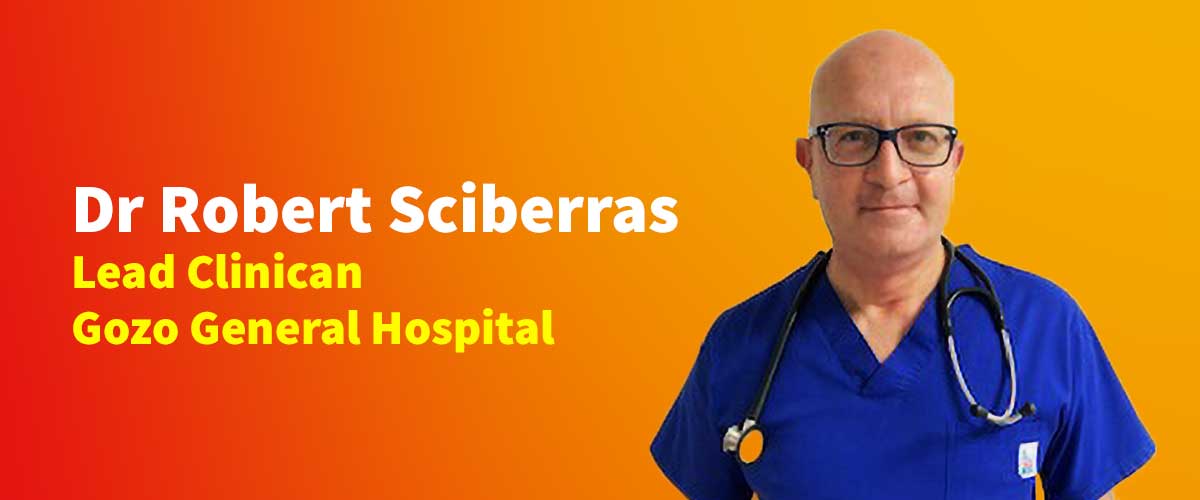One placement, two perspectives
As a medical student in Malta, you'll undertake regular clinical placements, gaining hands-on experience on the hospital floor. Nerve-wracking for some, a breeze for others! For two perspectives on one placement, we asked a doctor and a student to describe their experiences.
Dr Robert Sciberras, Lead Clinican at Gozo General Hospital, appreciates students who are keen to learn.
What kind of things do you learn on placements?
The first two years are about teamwork. In the third and fourth you'll begin to see patients and understand why they are on the ward. In the fifth year, you are almost ready to get out there and be put on the spot.
How are they beneficial?
It's all about having contact with patients – taking histories, doing examinations, then coming back with ideas. It's also a valuable chance to understand that everyone on the ward is important, from consultant to cleaner.
What qualities do you need to run placements?
Teaching is a passion, some are born to do it and some are not. When we accept students it's with the understanding that we don't see them as a burden.
What do you learn from students?
Our students spend a lot of time talking to patients and taking histories, and sometimes they learn more than we do. That's often useful when it comes to them relaying information back to us.
What is your individual approach?
You need to sound confident as a doctor, public speaking is a big part of things, so I give students assessments. They have one night to learn a topic then present it next day on the wards, with confidence. Another fun trick is when I ask students to look at a patient's bedside table – you can learn a lot!
What attitude do you expect from students?
I like students who show enthusiasm, who avoid slouching or being on the phone. Students must transmit the need to learn – those who don't stick out like a sore thumb.
Highs and lows?
I love it when my students go on to become local doctors here. I was teaching a dentist on a month-long placement who was learning medicine to be a maxillofacial doctor. I told him he needed an ‘A' – he decided to stay for six months and got it! There aren’t many lows. Ward rounds that take twice the time with students, but that’s just how it is.
Any advice?
The more energetic you are, the higher my level of teaching. Make sure you're here because you love learning. Show some enjoyment, prove yourself useful, and you'll receive my best.
Third-year student Jonathan Morris knows clinical placements are essential for getting up-close experience.

What kind of things do you learn on placements?
At first you're mainly observing, but by the third year you'll have ticked a number things off, like taking blood, doing cannulations and catheterisations.
How are placements beneficial?
It's all about moving away from your comfy library and textbooks, being thrust into an unfamiliar environment and having to adapt. You can't learn any other way.
Is it scary being put on the spot?
Nerve-wracking! You don't want to make mistakes in front of patients, but you're encouraged to have a go. Some doctors, like Dr Scibirras, will set overnight homework on your errors that you present next day to ensure you get it right – a thorough training.
Any tricky moments?
One patient needed calming about an impending operation; it was useful to see how the doctor made a worrying situation more manageable. Sometimes I have language barriers with the older population because I don't speak much Maltese. People are kind, though.
What approaches have you admired?
Dr Sciberras sees his patients every single day; that's rare. At the very least he says 'hello'. To touch base makes a big difference. How does he do it? He walks at quite a speed!
Favourite placements?
I enjoyed my time in our big general hospital on Malta – I was with a nephrologist (kidney specialist), which was great. I'm also looking forward to my A&E placement.
Highs and lows?
A high might be the first time you take blood or do an examination and it goes well and you think: everything I've learned is coming together. The lows are when things don’t go quite right. But there’s always the opportunity to have another go.
Any advice?
Everyone on the course is in the same boat, with their own levels of anxiety. Interacting with staff can be daunting and you don't want to seem stupid, but people are supportive. Always be proactive, you'll be surprised at how accommodating people are.
